calsfoundation@cals.org
Whig Party
The Whig Party emerged as a national force in the 1830s under the leadership of Henry Clay and Daniel Webster, primarily in opposition to the policies of President Andrew Jackson. The party’s emergence and success in Arkansas largely mirrored the national pattern, with Arkansas Whigs opposing the political dynasty known as “The Family,” which dominated the territorial and state Democratic Party until the eve of the Civil War. Echoing the national Whig Party’s platform of federal support for internal improvements such as roads and canals, protective tariffs, and a national bank, Arkansas Whigs championed a stronger national role in regional economic development. This ran counter to the more limited states-rights philosophy of the Democrats. The Whigs, however, were largely unsuccessful in challenging the Democrats for political control of Arkansas, and the party collapsed in turmoil over the issue of slavery in the early 1850s.
In Arkansas, the Whigs initially supported Robert Crittenden, Arkansas’s first territorial secretary who, by 1833, had become mired in personal and financial scandal and had fallen out of favor with the Family. In the mid-1830s, Arkansas’s Whigs were early advocates of statehood for the Arkansas Territory, in part because Crittenden and his allies believed that statehood offered their best hope of returning to political power through the opportunities for new state and federal elective offices, political patronage, and access to land that would follow. In late 1835, Whig interests from northwestern Arkansas, led by David Walker of Fayetteville (Washington County), rallied to oppose what they saw as a plot by Democrats from southern and eastern Arkansas to unfairly bolster their region’s representation at the state’s upcoming constitutional convention. The first evidence of a true party system in the state, however, began to emerge in the elections for governor and Congress in the fall of 1836, when allies of the Family gubernatorial candidate, James S. Conway, began to refer to themselves as Democrats—thereby allying themselves with Andrew Jackson’s National Democratic Party—and accused opposition supporters of being anti-Jackson and anti-Martin Van Buren, Jackson’s vice president and presidential successor.
Politics in the Arkansas Territory were largely personal and restricted to local concerns in the territorial and early statehood periods, with few issues of ideology or national concern dividing the pro-Jackson Family and Crittenden’s Whig supporters. In 1840, Arkansas Whigs drew at least a hundred spectators when they raised a log cabin and a liberty pole in downtown Little Rock (Pulaski County) at a campaign rally, complete with free whiskey and music, for their presidential candidate, General William Henry Harrison. A Whig convention earlier that year in the capital city had reportedly drawn thousands of supporters from across the state.
Partisan passions exploded into violence on occasion, as was the case in 1845 when Benjamin Borden, the Whig publisher of the Arkansas Gazette, challenged Solon Borland, the editor of the Democratic Arkansas Banner, to a pistol duel over comments Borland had published in his paper. The two squared off in Indian Territory soon thereafter, with Borden suffering a near-fatal bullet wound.
The most significant political issue to confront Arkansas during the early statehood period was the financial collapse of and ensuing corruption scandals surrounding the Arkansas Real Estate Bank and the State Bank, established during the new state’s first legislative session. While the Whigs were generally more supportive than the Democrats of banks as institutions and tools of economic policy, both parties were guilty of financial mismanagement, speculation, and embezzlement.
By the 1840s, a fairly stable political system had developed in Arkansas, with generally high levels of voter turnout in state races, widespread party voting, and reduced emphasis on candidate personalities. Despite the Whigs’ core of support—primarily in the southern and eastern portions of the state where slavery and plantation agriculture were more well established and where there were fewer yeoman farmers, traditional supporters of the Democratic Party—both parties had adherents all over Arkansas. Regional differences were not a major source of contention between the parties. However, Arkansas’s Whigs were rarely successful in winning any regular statewide races in the 1830s and 1840s, and they often failed to field candidates altogether. Arkansas Whigs won only one statewide race in the 1840s, narrowly electing Thomas Newton over three Democratic candidates in 1846 to serve out the remaining twenty-five days of the congressional term Archibald Yell had abandoned when he left Washington DC to serve in the Mexican War.
Arkansas’s Whigs typically held about one-quarter of the state legislative seats during their heyday, allowing them to realize some of their legislative goals by shifting their support from one Democratic faction to another. Similarly, Whig control of at least one of the statewide newspapers at any given time offered ample opportunities to criticize Family policies and Democratic officeholders, as well as to respond to attacks on Whigs from the Democratically allied newspapers. This was the case in 1837, when the pro-Whig Times and Advocate criticized Congressman Yell for being insufficiently concerned over the threat posed by the emerging abolitionist movement.
Although Arkansas’s Whigs never constituted a majority of the Arkansas electorate, they did include a number of prominent individuals, most notably Absalom Fowler; C. C. Danley; and Albert Pike, the Bostonian scholar, attorney, and Freemason who settled in Arkansas in the 1830s. Pike’s newspaper, the Advocate, was an early proponent of the Whig platform, and in 1843, the Democratic publisher William Woodruff sold his Arkansas Gazette to the Whigs, in part due to his dissatisfaction over the Family’s refusal to grant state printing contracts to his paper. Other than Pike, Arkansas’s most prominent Whig was David Walker of Fayetteville, who lost the 1844 congressional race to Yell, his business partner and the former governor.
The beginning of the end for the Whig Party as a national force came in the controversy over the issue of slavery in the territories newly acquired from Mexico following the Mexican War. The debate culminated in the Compromise of 1850, which accepted California into the Union as a free state, organized the New Mexico Territory without any specific prohibition against slavery, prohibited the slave trade in Washington DC, and implemented the Fugitive Slave Act to force state and local authorities in the North to return escaped slaves to the South. While most Arkansas Democrats—including Congressman Robert Ward Johnson, Senator Solon Borland, and Governor John Roane—opposed these measures, the state’s Whig press supported Henry Clay’s Compromise. In the years that followed, pro- and anti-slavery Whigs at the national level struggled over control of the party, and the anti-slavery faction was successful in awarding the party’s 1852 presidential nomination to General Winfield Scott instead of to the pro-Compromise incumbent Millard Fillmore. Scott went on to lose to the Democratic candidate, Franklin Pierce, that fall. The Whigs finally collapsed in the national furor over the 1854 Kansas-Nebraska Act, which abandoned the 1819 Missouri Compromise’s approach to the regulation of slavery in the territories in favor of a system of popular sovereignty in which citizens of each territory would vote on whether to allow slavery following statehood, with most Arkansas Whigs flocking to the Democratic Party or the new Know-Nothing Party.
For additional information:
Adams, Horace. “The Year 1856 as Viewed by an Arkansas Whig.” Arkansas Historical Quarterly 1 (June 1942): 126–133.
Bolton, S. Charles. Arkansas, 1800–1860: Remote and Restless. Fayetteville: University of Arkansas Press, 1998.
Boyett, Gene W. “Quantitative Differences between the Arkansas Whig and Democratic Parties, 1836–1850.” Arkansas Historical Quarterly 34 (Autumn 1975): 214–226.
———. “The Whigs of Arkansas, 1838–1856.” PhD diss., Louisiana State University, 1972. Online at https://digitalcommons.lsu.edu/gradschool_disstheses/2326/ (accessed December 11, 2025).
Moneyhon, Carl H. Arkansas and the New South, 1847–1929. Fayetteville: University of Arkansas Press, 1997.
Walker Family Papers. Special Collections. University of Arkansas Libraries, Fayetteville, Arkansas.
Walton, Brian G. “The Second Party System in Arkansas, 1836–1848.” Arkansas Historical Quarterly 28 (Summer 1969): 120–155.
William D. Baker
United States Department of State
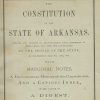

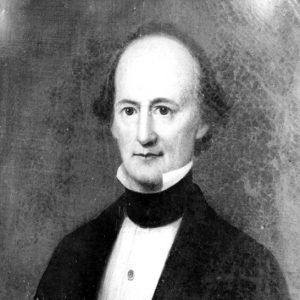
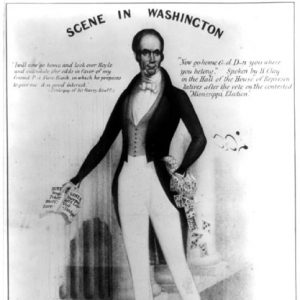
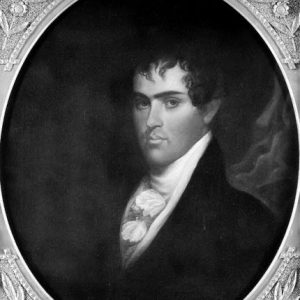
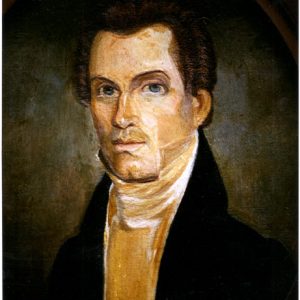
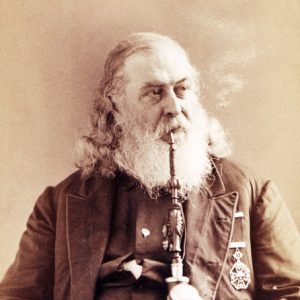
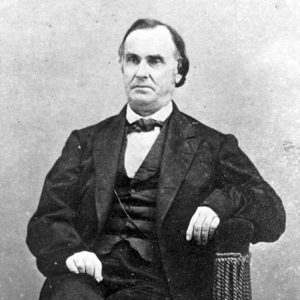




Comments
No comments on this entry yet.